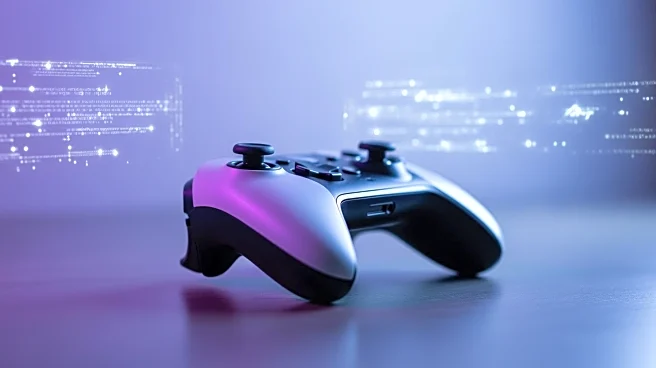What's Happening?
Brendan 'PlayerUnknown' Greene, the creator of PUBG, has spoken out about the backlash against the use of generative AI in video games. Greene expressed his support for the community's resistance to AI-generated
content, emphasizing the importance of artist-driven creation. His studio, PlayerUnknown Productions, supported by Krafton, is conducting technological research into machine learning to empower artists in generating virtual worlds. Greene's comments come amid criticism of AI use in games like Call of Duty: Black Ops 7, where AI-generated art has sparked calls for regulation. Despite the controversy, Greene remains optimistic about AI's role in enhancing creative processes without replacing human artistry.
Why It's Important?
The debate over AI in gaming highlights broader concerns about the role of technology in creative industries. Greene's stance underscores a growing sentiment among gamers and developers who prioritize human creativity over automated processes. This backlash could influence industry standards and regulatory measures, as evidenced by a U.S. Congressman's call for AI regulations following the controversy surrounding Call of Duty: Black Ops 7. The outcome of this debate may shape future game development practices, balancing technological advancements with artistic integrity, and potentially impacting how AI is integrated across other sectors.
What's Next?
PlayerUnknown Productions is set to launch its first game under Project Artemis, showcasing terrain-level world generation. This project aims to demonstrate the potential of AI-assisted tools in game development while maintaining artistic control. As the gaming industry navigates AI integration, stakeholders may push for clearer guidelines and ethical standards. Developers and publishers might need to address consumer concerns and adapt to evolving expectations regarding AI's role in creative processes. The ongoing discourse could lead to industry-wide changes in how AI technologies are utilized and regulated.
Beyond the Headlines
The controversy surrounding AI in gaming raises ethical questions about authorship and originality. As AI technologies advance, the distinction between human and machine-generated content becomes increasingly blurred, challenging traditional notions of creativity. This shift may prompt discussions about intellectual property rights and the value of human input in digital art. Additionally, the backlash reflects broader societal apprehensions about AI's impact on employment and cultural production, potentially influencing public policy and educational approaches to technology.












